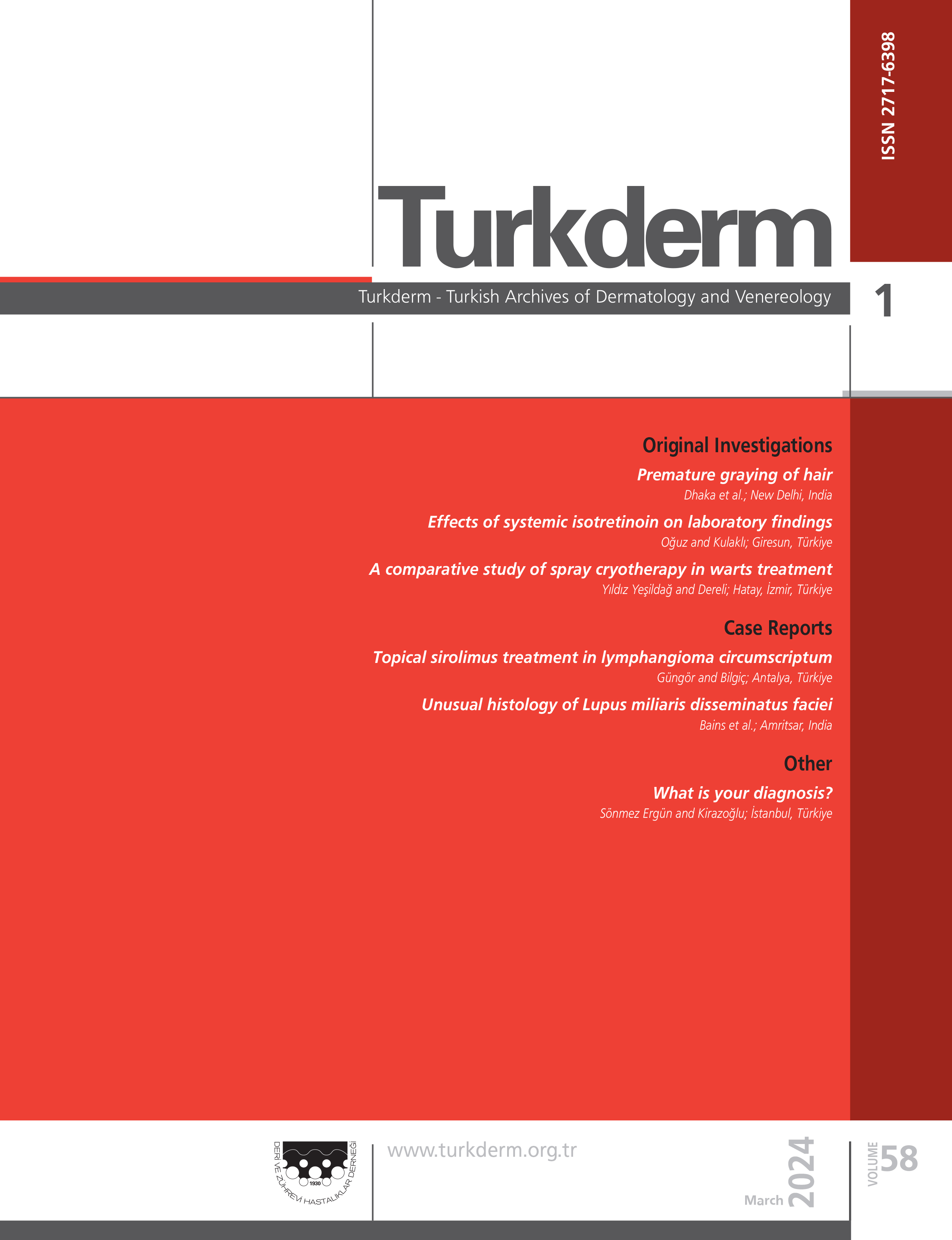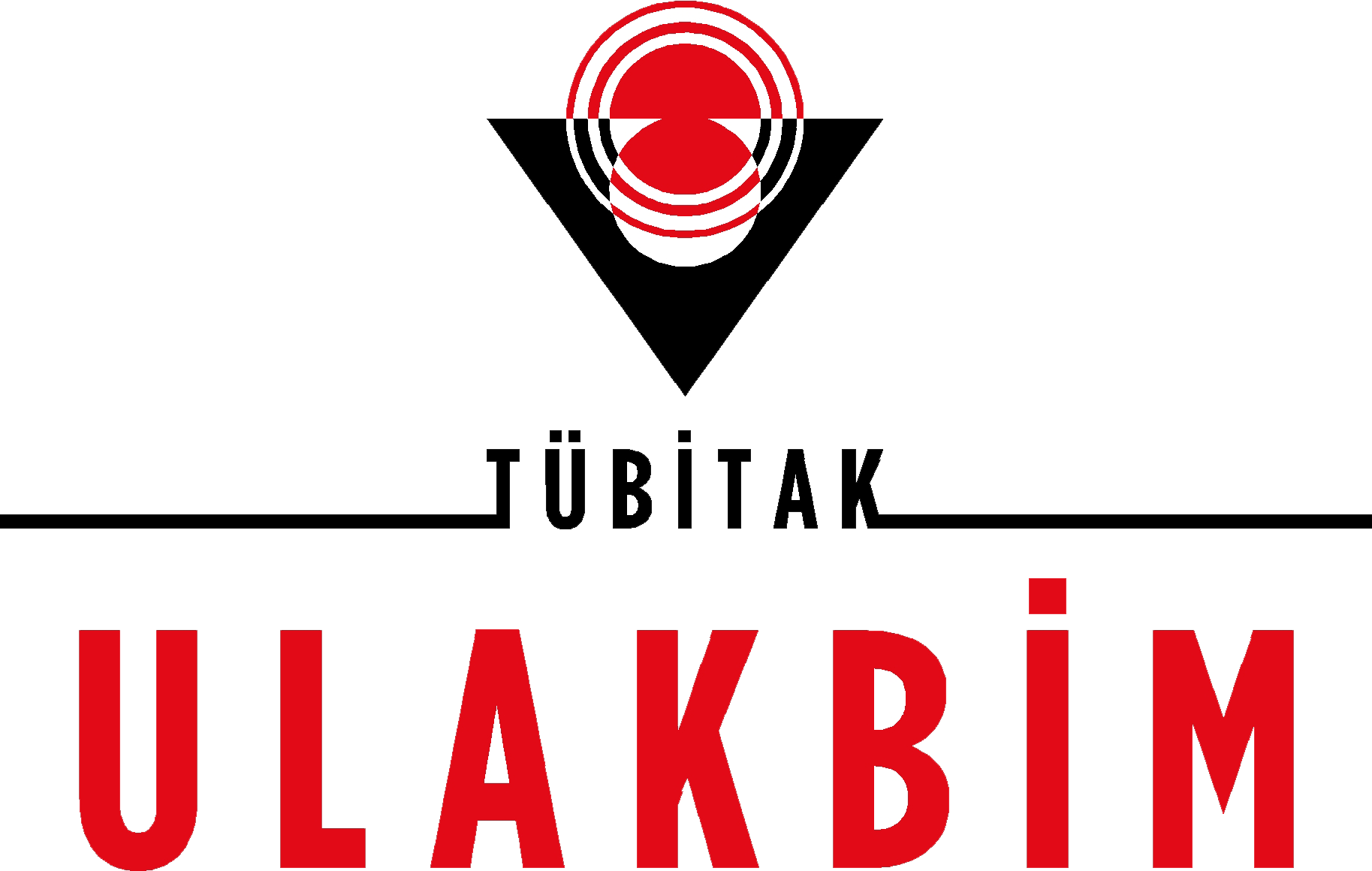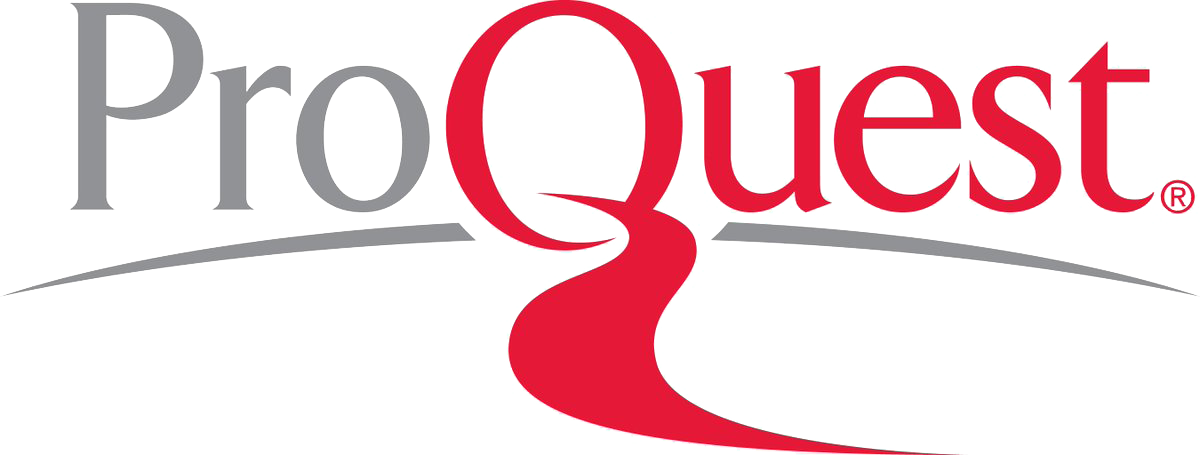Efficiency and side effects of isotretinoin usage in the treatment of acne vulgaris
Ahu Çiler Çıkım1, Muammer Seyhan21Malkara Social Hospital Department Of Dermatology, Tekirdag, Turkey2Department Of Dermatology, İnönü University, Malatya, Turkey
Background and Design: Although satisfying results with isotretinoin therapy were reported in treatment of severe or moderate but resistant acne vulgaris; the data about this treatment modality in Turkey is insufficient. Therefore we aimed to asses the clinical efficiency of isotretinoin treatment in patients with severe or moderate but resistant acne.
MATERIAL-METHOD: Ninety four patients were enrolled into the study. The patients were evaluated for clinical symptoms and biochemical parameters; dosage of isotretinoin treatment; response to treatment and adverse events. Patients received 0,5-1 mg/kg/day isotretinoin for 24-32 weeks, with a 120/mg/kg total cumulative dose. The severity of the facial lesions were graded from 0 (no acne) to 12 (severe acne); and corporal lesions (back and chest) from 0 (no acne) to 8 (severe acne). RESULTS: Although three of the patients (3.2%) failed to continue medication; ninety one patients (96.8%) finale the treatment period with complete recovery. The most common clinical side effect was cheilitis which was seen in all the patients and the most important biochemical side effect was the elevation of serum triglyceride concentrations. CONCLUSION: Isotretinoin can be concluded as a valuable and rather tolerable choice of treatment in patients with severe or moderate but resistant acne vulgaris.
Akne vulgaris tadavisinde izotretinoinin etkinliği ve yan etkileri
Ahu Çiler Çıkım1, Muammer Seyhan21Malkara Devlet Hastanesi Deri ve Zührevi Hastalıklar Kliniği, Tekirdağ2İnönü Üniversitesi Tıp Fakültesi, Deri ve Zührevi Hastalıklar Ana Bilim Dalı, Malatya
AMAÇ: Şiddetli ve diğer tedavilere cevap vermeyen orta derecede aknede izotretinoin ile başarılı sonuçlar alındığı bilinmektedir. Ülkemizde akne tedavisinde izotretinoin ile ilgili az sayıda çalışma yapılmış olduğundan amacımız şiddetli akne ve diğer tedavilere cevap vermeyen orta şiddette akne tedavisinde izotretinoinin klinik etkinliğini ve yan etkilerini belirlemektir. GEREÇ-YÖNTEM: Toplam 94 hasta tedaviye alındı. Hastalar klinik bulgular, kullanılan izotretinoinin dozu, ilaca verilen yanıt, klinik ve laboratuvar parametreleri ile yan etkiler yönünden değerlendirildi. Hastaların aldığı izotretinoin dozu 0,5-1 mg/kg/gün, tedavi periyodu 24-32 hafta, total kümülatif doz ise 120 mg/kg idi. Olgularımızın akne şiddet derecelendirmesi yüz bölgesinde 0 (akne yok) ve 12 (şiddetli akne) arasında, göğüs ve sırt bölgesinde ise 0 (akne yok) ve 8 (şiddetli akne) arasında yapıldı.
BULGULAR: Tedavi sonunda tedaviyi tamamlayan 91 (%96.8) olguda tam iyileşme gözlendi. Üç (%3.2) olguda değişik nedenler ile tedavi sonlandırıldı. En sık rastlanan klinik yan etki hastaların tümünde görülen keilit, en önemli biyokimyasal yan etki ise serum trigliserid yükselmesiydi. SONUÇ: Çalışmamızın sonucunda şiddetli ve diğer tedavilere cevap vermeyen orta şiddetteki akne tedavisinde izotretinoinin iyi tolere edilen ve iyi sonuç alınan bir tedavi yöntemi olduğu kanaatine vardık.
Corresponding Author: Ahu Çiler Çıkım, Türkiye
Manuscript Language: Turkish






















